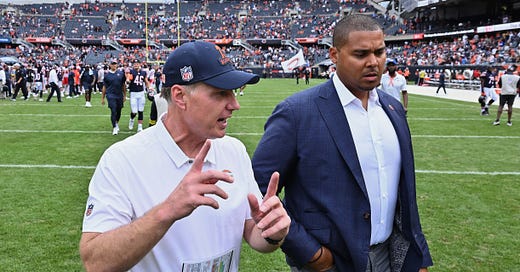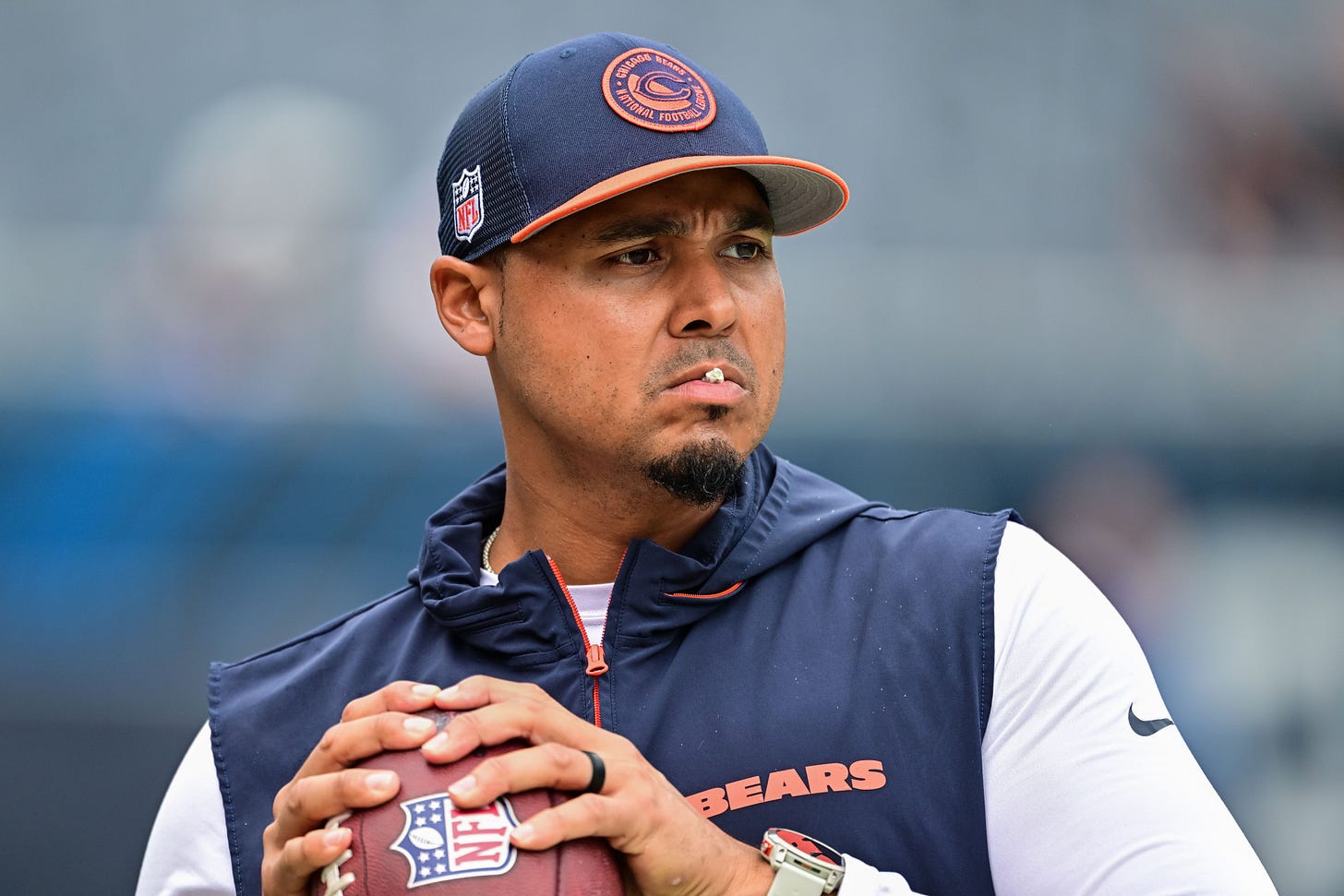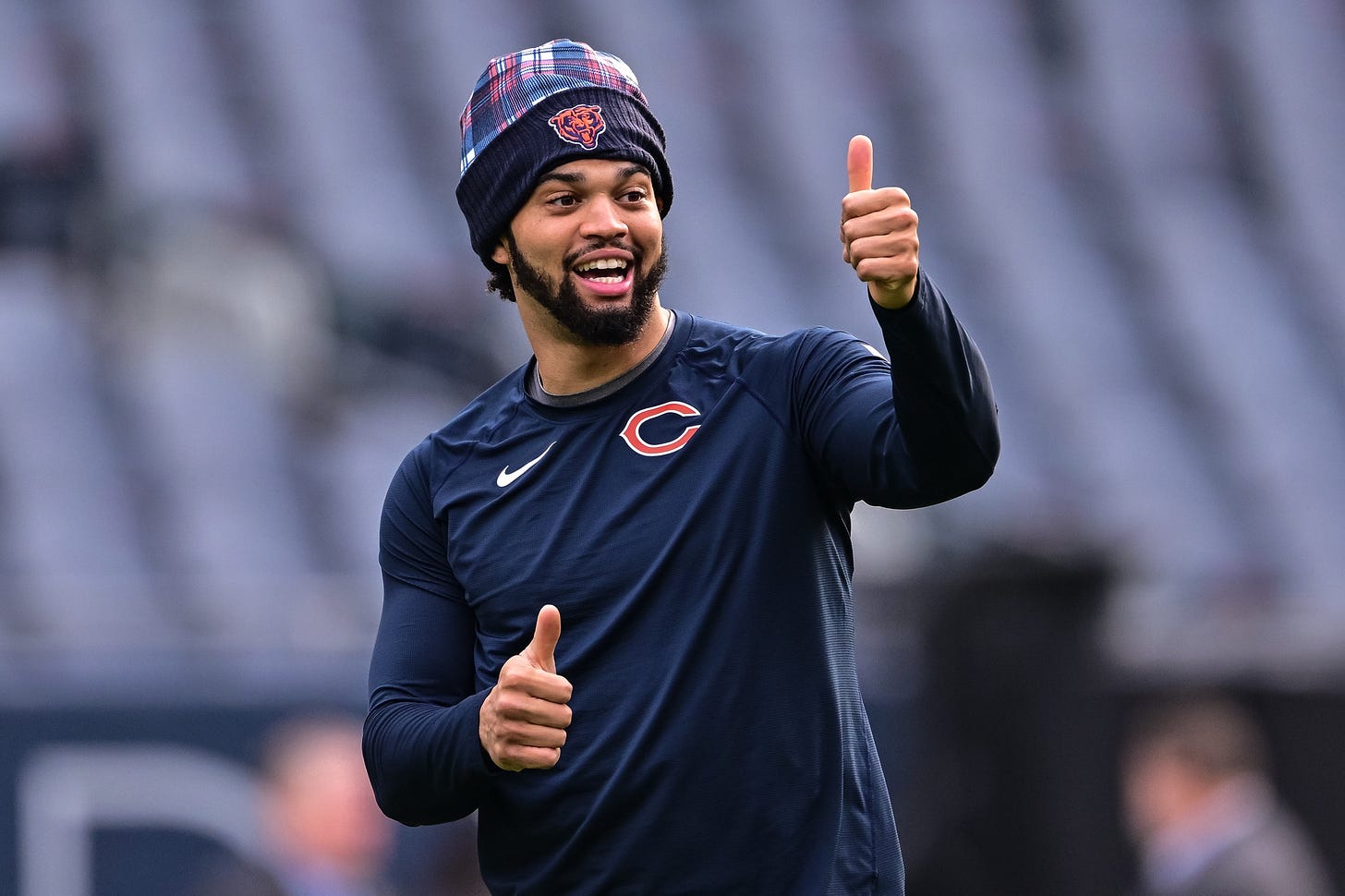The Chicago Bears (and Caleb Williams) Deserve Better
Matt Eberflus Firing is an opportunity to self-correct
It had to be done.
Matt Eberflus had to be fired as head coach of the Chicago Bears. It came after a series of glaring failures on his part—failures that went beyond just the win-loss record and struck at the very core of the team’s structure. Eberflus was unable to effectively lead the Bears, particularly in critical moments, even after replacing the offensive coordinator and naming an interim. Late-game execution, especially on the offensive side of the ball, remained a glaring issue.
This season saw one of Eberflus’ most defining failures—a defensive collapse against the Washington Commanders. As a defensive-minded coach, this was his responsibility, and the failure ultimately became the tipping point. Then came the Thanksgiving Day meltdown, which further highlighted the team's lack of direction and inability to correct course under the current regime. These failures made it clear: the Bears needed significant change, and Eberflus could not deliver it.
The Bears' Larger Problem: Missteps in Development
One of the most concerning aspects of the Bears’ struggles has been their mishandling of key investments on offense. In the last draft, the Bears used two top-10 picks to build up their offensive talent. However, the coaching staff—especially under Eberflus—was ill-equipped to support their development. This failure has stalled the progress of both their franchise quarterback and their top rookie wide receiver, Rome Odunze, and it represents a critical misstep for a team trying to rebuild.
This season is essentially a lost cause for Chicago. The interim head coach and the offensive staff now face the challenging task of minimizing the damage—both physically and mentally—to their young stars. At the same time, they must maintain some level of competitiveness, which recent performances suggest is still possible.
The Pressure Shifts to Ryan Poles
With Eberflus out, the spotlight now turns to general manager Ryan Poles. The fact that the Bears fired their head coach midseason—a first in franchise history—sends a clear message: Poles is in charge of this organization’s future. That’s a positive sign for Bears fans, as Poles has a background in winning environments, having come from the Kansas City Chiefs.
Poles now faces a critical crossroads. He must make tough but necessary decisions to put the Bears back on track. At the heart of these decisions is one key priority: supporting and developing Caleb Williams, their presumed future franchise quarterback. Everything else comes second.
A Path Forward: Lessons from Kansas City
If Poles wants a roadmap for success, he doesn’t need to look far. The Kansas City Chiefs provide a perfect example of how to build around a young quarterback. The Bears must adopt a similar approach, starting with hiring an offensive-minded head coach. This hire must be someone experienced in quarterback development who can assemble a staff capable of nurturing young talent.
This was the critical mistake in Poles’ previous coaching hire. Eberflus, a defensive-minded leader, was not the right choice for a team investing heavily in its offense. Poles cannot afford to repeat that error. The Bears must commit fully to becoming an offensively driven team.
That commitment also means bolstering the offensive line and continuing to add weapons around Williams. These moves will give him the tools he needs to succeed. But make no mistake—Williams has work to do, too. (I’ll lay that out another time)
The Stakes for the Bears’ Leadership
For the Bears, this isn’t just about salvaging a season. It’s about building a foundation for the future. The decisions made in the coming months will determine whether this franchise can finally get back on the right track or continue its cycle of mismanagement and missed opportunities.
This moment is pivotal for Ryan Poles and the McCaskey family. If they fail to prioritize Williams’ development and fail to build a coaching staff that can support him, the consequences will be severe. In three years, they could find themselves hiring another head coach—and possibly searching for a new general manager as well.







